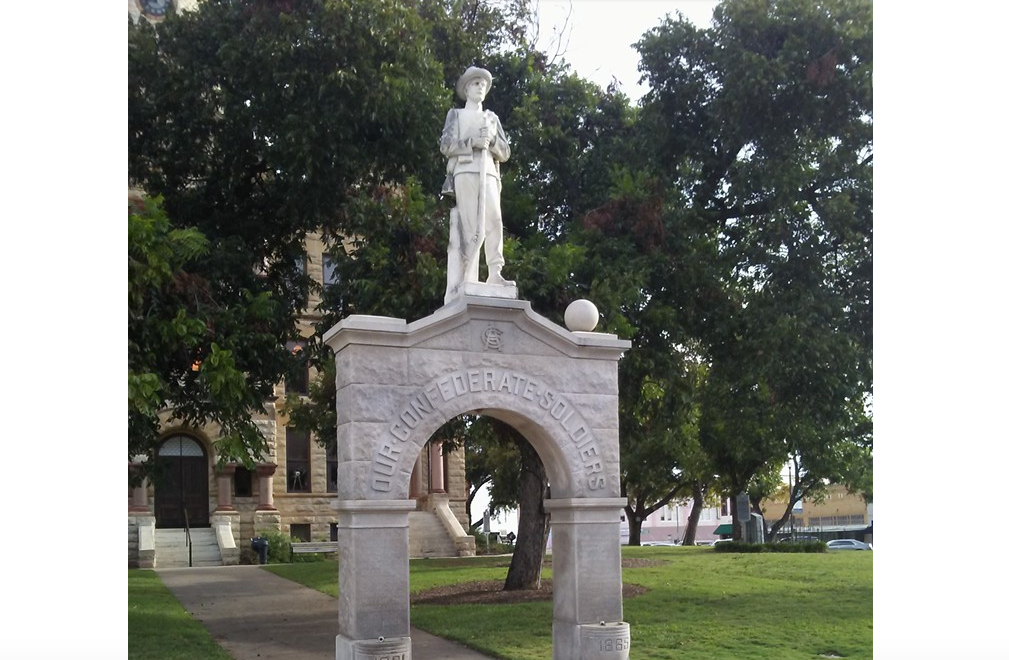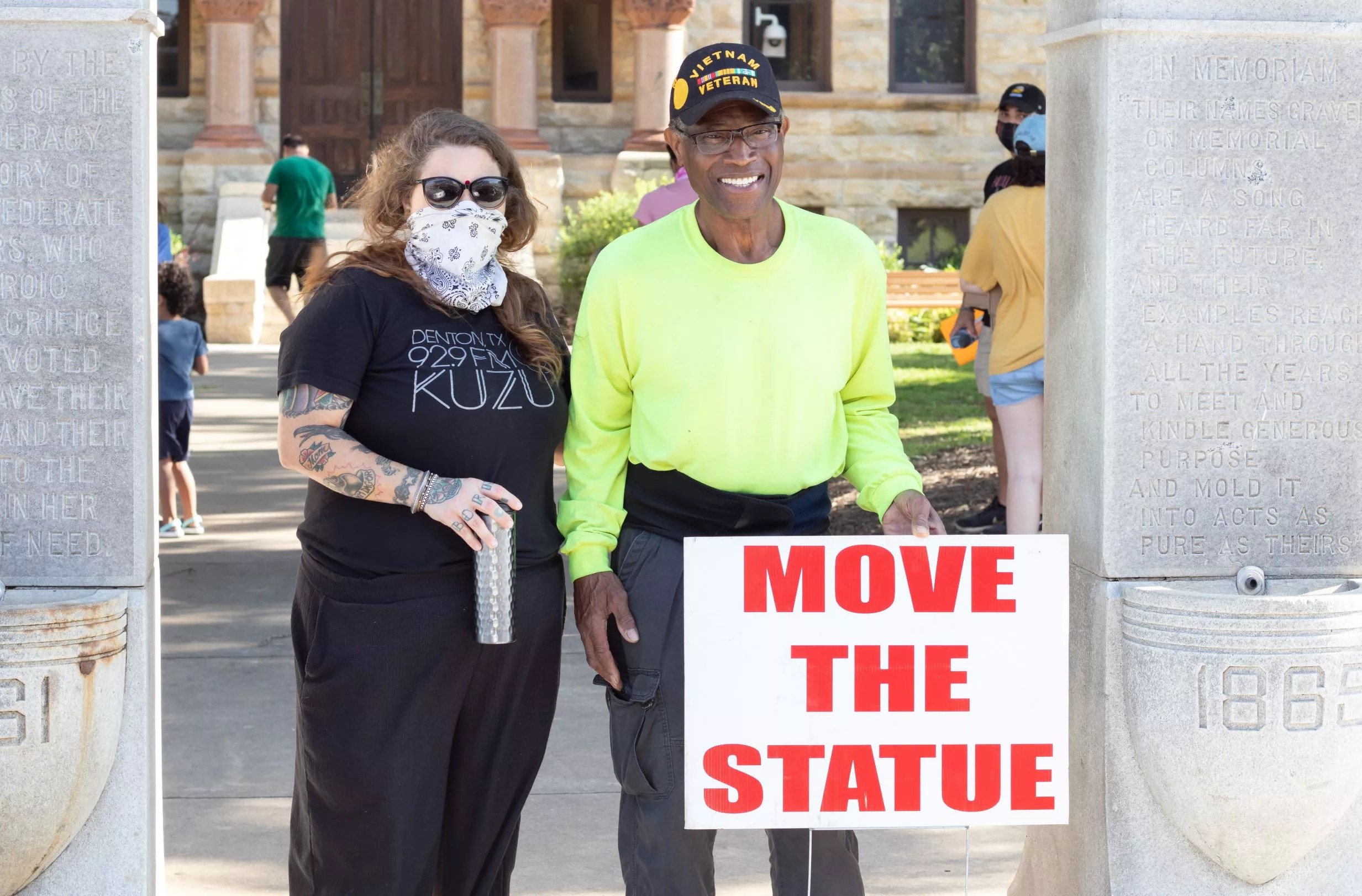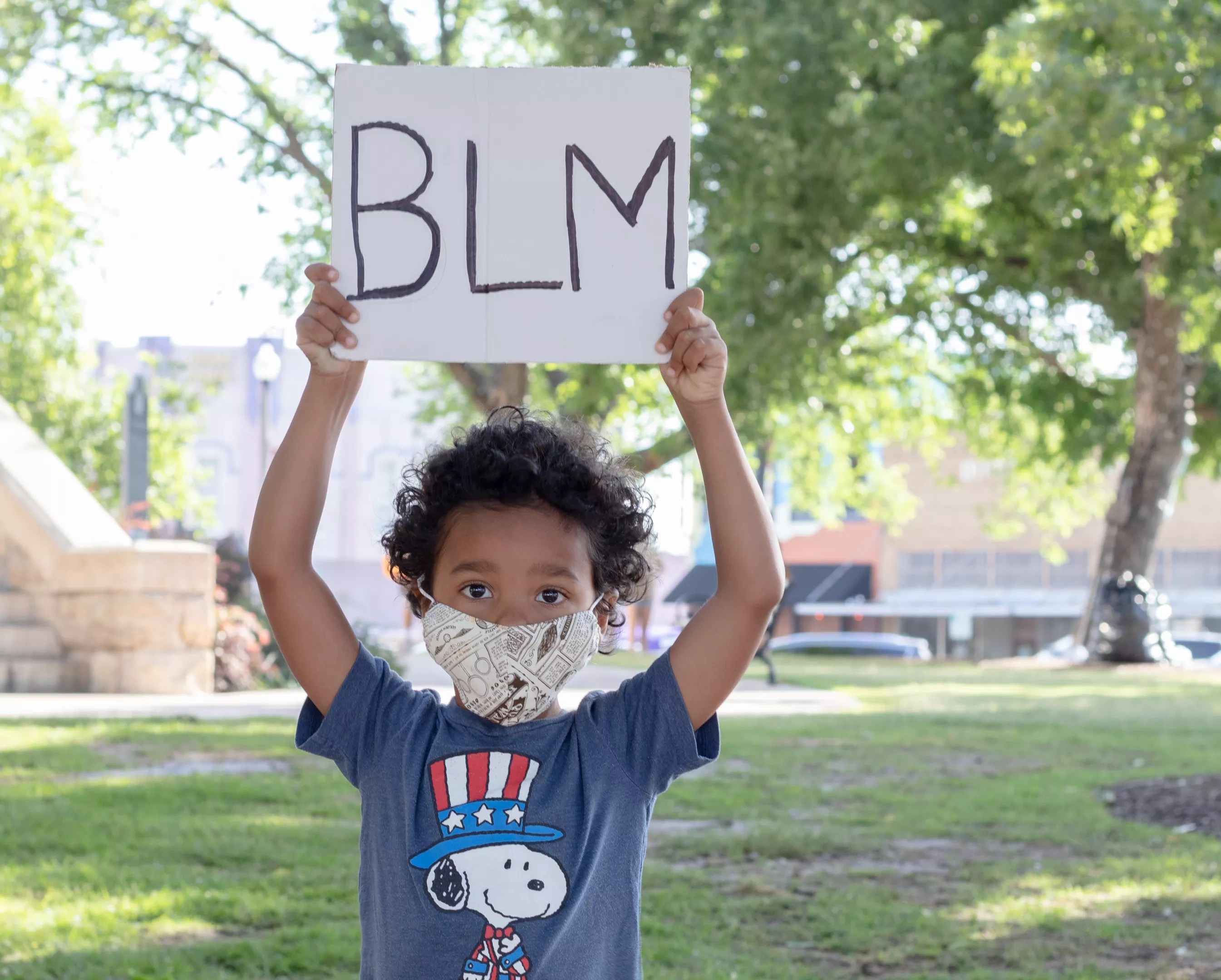
Christian McPhate

Audio By Carbonatix
It’s a moment 21 years in the making for Willie Hudspeth. Since the late ’90s, the activist has been protesting Denton’s Confederate monument, which stands in front of the town’s courthouse.
Now, the statue is finally being removed. On Tuesday, Denton County Commissioners unanimously voted to apply for its relocation and eventual restoration.
“I’m in disbelief somewhat, because it’s been so long,” Hudspeth said. “I had planned what I was going to say should this moment happen within my lifetime … [I’m] at a loss for words.”
As Black Lives Matter protests continue, Confederate monuments across the country are being torn down. Fort Worth will soon lose a Confederate marker after Tarrant County commissioners voted Tuesday to remove it, according to the Star-Telegram. The day before, protesters in England toppled a statue of a slave trader.
For some, Denton’s Confederate statue honors history. For others, it symbolizes the horrors of the South’s insidious white supremacy problem.
Last week, a Change.org petition began circulating in favor of the monument’s removal. It had attracted more than 31,000 signatures by Tuesday afternoon.
In his opening remarks, Denton County Judge Andy Eads said the statue should be relocated for safety reasons. When and where it will go will be determined at a later meeting.
Eads did not immediately return requests for comment.

Activists Jessica Luther Rummel and Willie Hudspeth stand under Denton’s Confederate statue Tuesday morning ahead of the county commissioners’ meeting.
Simone Carter
Denton activist Terrell Peterson said he was happy to hear how the commissioners voted. He’s been bothered by the statue since the late 2000s, when he first visited the town to see about enrolling in one of its three colleges.
“Do you really want any of your potential students of color – or any students – to see that?” he remembers thinking. “Because they will immediately think that this town is racist and maybe think twice about moving here.”
With a gun in hand, a young soldier stands atop Denton’s monument, which stretches over the sidewalk leading up to the Courthouse-on-the-Square Museum. Etched below his feet are the words “Our Confederate Soldiers.” Two water fountains – which Hudspeth said were both reserved for whites only – are located on either side of its archway.
Hudspeth protests in front of the Denton courthouse every Sunday, often alone. In 2017, some demonstrators joined him after a violent Unite the Right white supremacist rally in Charlottesville, Virginia.
“Its original purpose and its continued power is to threaten, terrorize and intimidate black people.” – Nancy Stockdale, UNT history professor
That year, someone even vandalized the statue, but the protests soon lost steam.
Jessica Luther Rummel is a University of North Texas doctoral student who has been researching Denton’s history of white supremacy for the last three years. Through her work, she’s unearthed documents proving the statue’s racist history.
The monument was erected in 1918 and funded by the United Daughters of the Confederacy, Luther Rummel said. Many UDC members were also in the Ku Klux Klan.
Since that discovery, Luther Rummel has written op-eds and conducted lectures to inform others about the monument’s racist inception. She said it’s likely that outreach, plus the ongoing George Floyd protests, that helped sway the county’s commissioners.
Still, Luther Rummel thinks the commissioners only voted that way to ensure the statue wouldn’t be vandalized again.
“It’s not about doing the right thing; this is about trying to protect that monument and it’s disgusting,” she said. “The battle has just begun.”
About a dozen people spoke to the commissioners via Zoom in support of the statue’s removal during the meeting. But many said they were upset by Eads’ rationale.
Nancy Stockdale, a UNT history professor, demanded that the monument be destroyed entirely. She said the statue is no different than those dedicated to the Nazis or Saddam Hussein.
“Its original purpose and its continued power is to threaten, terrorize and intimidate black people and anyone who dares to call out the original sin of this country: slavery and its racist legacy,” Stockdale said.
Before Tuesday morning’s meeting, several demonstrators stood in front of the courthouse to greet the commissioners as they arrived. Albert Picardi, a Flower Mound resident, said he only recently learned of Denton’s monument but felt compelled to show support.

Activist Leo Isma, 4, holds a Black Lives Matter sign ahead of Tuesday’s vote to remove Denton’s Confederate monument. It was his first protest.
Simone Carter
Protester Angela Brewer wants the statue removed from public view. The Denton native said if it needs to be preserved, it could be moved yards away to the courthouse’s museum.
Brewer has attended a couple of demonstrations over the past week in support of black lives. This time, she brought her 4-year-old son, Leo Isma, along for his first protest.
“Denton’s his home too,” Brewer said. “He was born here. He’s been raised here, and I want him to be a part of this change in our community.”
Although the monument will soon be torn down, it’s still uncertain where the it will be moved. During the meeting, some suggested that it be included as part of a traveling museum exhibit, Luther Rummel said.
Luther Rummel left the meeting feeling upset; the commissioners did nothing to recognize the statue’s racist history, she said. By spending taxpayer dollars to restore it, they are continuing to preserve Denton’s shameful past.
Although Hudspeth was not there for the final vote, he said he is thankful that progress is being made.
“I think it’s good, and I’m glad that it’s happened,” Hudspeth said. “I’m so happy that this part of it has been dealt with in a way that is good for everybody.”